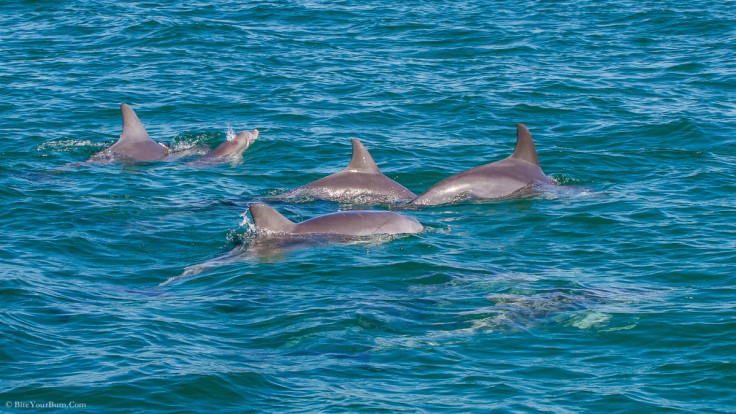Dolphins forced to 'shout' to compensate for human-made background noise
Scientists have previously found that elevated noise levels affect marine animals' ability to find and corral prey.
According to a new study published in the journal Current Biology, dolphins "shout" to each other to drown out background noise and communicate. It said that noise pollution makes it difficult for dolphins to communicate and cooperate.
"In a very noisy pub we find ourselves increasing the volume of our voice. Dolphins respond in a similar way – they're trying to compensate but there are some miscommunications," said Pernille Sørensen, one of the authors of the study.
The study involved a pair of dolphins, Delta and Reese, and analysed how they responded to the background noise.
It was discovered that when exposed to high volumes underwater, they attempted to change their body language and increase the volume and length of their calls in order to coordinate with one another.
"Despite their attempts to compensate, despite being highly motivated and the fact that they know this cooperative task so well, the noise still impaired their ability to successfully coordinate," said Sørensen.
The noise causes a lot of distress for these animals, bringing them to a panic dive or high alert levels. Dolphins change their tunes and lower their frequency, which reduces the variety of the songs they sing.
Some whales are even known to stop singing altogether, which greatly affects their communication with their pods.
Ocean research has also shown that the navigation systems of naval vessels cause confusion in whales and dolphins since they use echolocation for their own navigation. They usually flee in such situations, which is thought to be a major cause of whale and dolphin strandings.
Scientists have previously found that elevated noise levels affect marine animals' ability to find and corral prey, communicate, or navigate properly.
Recently, a study led by the Woods Hole Oceanographic Institution (WHOI) in the US, found that turtles experience temporary hearing loss due to underwater noise pollution caused by activities such as shipping.
The researchers found out that even low levels of noise affected their hearing power which is vital for their survival as they use it to avoid predators.

© Copyright IBTimes 2025. All rights reserved.






















